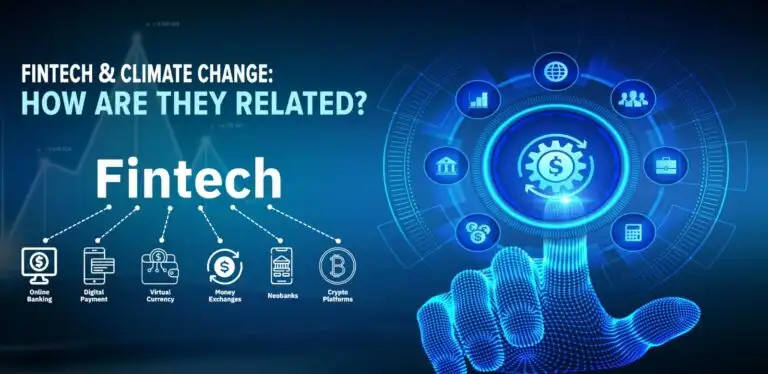As climate change accelerates, small island nations — often called “sinking nations” — are facing existential threats. Rising sea levels don’t just jeopardize land and infrastructure, they endanger economic independence, financial access, and cultural identity. But in the face of these escalating challenges, financial technology (fintech) is emerging as a powerful ally. From decentralized funding platforms to mobile banking and digital currencies, fintech offers real, scalable solutions to help vulnerable nations build resilience and secure their future.
The Financial Toll of Climate Change
The climate crisis strikes small island nations at multiple levels. These countries face devastating storms, coastal erosion, and the loss of arable land. Beyond the physical destruction, the financial consequences are equally severe. Economies that depend on tourism are destabilized, while access to global capital remains limited. Climate adaptation requires funding and infrastructure that many of these nations simply don’t have — which is where digital finance steps in.
Technology as a Lifeline
Recent research, such as that by ExpressVPN, highlights how fintech can be leveraged to reduce the financial burdens caused by climate change. Digital innovation can help ensure transparency in aid distribution, empower local economies, and enable governments to maintain control over their financial ecosystems — even as their physical environments change.
Streamlining Climate Finance Access
Accessing climate funds through traditional channels is often slow and bureaucratic. Delays and inefficiencies can prevent urgent aid from reaching those in need. Fintech simplifies this process through innovative, decentralized models.
Blockchain-Based Distribution
- Transparent fund tracking: Blockchain ensures that every transaction is recorded and publicly verifiable, increasing donor confidence and accountability.
- Decentralized finance (DeFi): These platforms eliminate intermediaries, allowing direct financial flows from donors to local projects, reducing corruption risks and administrative costs.
Reaching the Unbanked with Mobile Finance
Traditional banking is often out of reach for remote communities. Mobile banking, however, bridges that gap, offering secure and accessible services to people with limited infrastructure.
Inclusive Financial Tools
- Mobile wallets: Let users save money, pay bills, and receive funds without needing a physical bank branch.
- Microloans via mobile apps: Allow entrepreneurs to fund sustainable business ventures, even without formal credit histories.
This technology not only supports personal finance but plays a crucial role during recovery after natural disasters, when physical infrastructure may be damaged or inaccessible.

Fintech-Enabled Sustainability Through Microloans
Small loans, delivered through digital platforms, can have an outsized impact in climate-vulnerable regions. When paired with sustainability goals, microloans can support eco-conscious development while enhancing financial inclusion.
AI-Driven Lending for Green Innovation
- Solar energy adoption: Loans can be used to install clean energy solutions, reducing carbon emissions and energy costs.
- Regenerative farming: Funding sustainable agriculture helps maintain food security and ecosystem health.
- AI-based credit scoring: Evaluates loan eligibility using alternative data, expanding access to capital for those with no formal financial background.
Digital Currencies and Economic Independence
As rising seas claim territory, physical banking infrastructure becomes less reliable. In response, some nations are exploring the use of national digital currencies as a way to preserve financial sovereignty.
Why Digital Currency Matters
- Strengthening sovereignty: Digital currencies reduce dependency on foreign financial systems.
- Supporting diaspora remittances: Easier, cheaper cross-border payments help maintain GDP levels and family income streams.
- Building resilience: A blockchain-based financial ecosystem is secure, traceable, and operational even amid physical displacement.
Disaster Response Made Faster and Smarter
With climate change fueling more frequent disasters, the speed of financial response can mean the difference between recovery and collapse. Fintech enhances rapid reaction capabilities by automating emergency funding and insurance processes.
Digital Tools for Disaster Relief
- Parametric insurance: Automatically triggers payouts when certain thresholds (like rainfall or wind speed) are met — no need for lengthy claims processes.
- Digital wallets: Enable direct aid disbursement to individuals, even in displaced communities.
These systems cut through red tape, helping people rebuild their lives without delay.
Enabling Global Solidarity Through Tech
Fintech platforms can also help rally international support. Crowdfunding and decentralized giving tools allow individuals and organizations worldwide to contribute directly to climate resilience projects in endangered nations.
Strengthening International Collaboration
- Crowdfunding campaigns: Make it easy to back specific local projects, from rebuilding infrastructure to funding education programs.
- Cross-border fintech partnerships: Facilitate the transfer of knowledge, technology, and funding between governments, NGOs, and startups.
This shared approach shifts the burden of climate resilience from the few to the many, turning global goodwill into concrete support.
A Global Imperative for Action
While fintech offers scalable solutions, it can’t act alone. The international community must also invest in the digital infrastructure of vulnerable nations and advocate for their inclusion in global financial systems.
The Role of Wealthier Nations
- Investing in infrastructure: Help sinking nations build digital networks capable of supporting fintech tools.
- Policy alignment: Push for international regulations that empower small nations to use digital currencies and blockchain securely.
- Technical support: Provide knowledge-sharing and training to local leaders and innovators.
As outlined by Active Sustainability, the window to act is narrowing. Climate change isn’t a distant issue — it’s a current crisis, and collaboration is the only path forward.
Conclusion: A Digital Lifeline for a Drowning World
Fintech has the potential to transform the trajectory of sinking nations. From transparent funding systems and mobile banking to smart disaster response and digital currencies, these tools offer a way to preserve sovereignty, rebuild economies, and create new paths to resilience.
The future of these nations doesn’t need to be defined by loss. With coordinated support and continued innovation, fintech can help vulnerable communities not just survive climate change — but shape a stronger, digitally empowered tomorrow.






